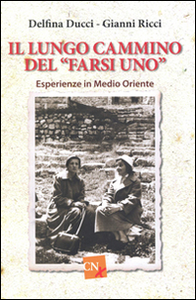
5 Jul 2017 | Focolare Worldwide
 People travel for various reasons: curiosity, thirst for knowledge, spirit of adventure, or in search of oneself. This was not so for Gianni Ricci who has indeed travelled far and wide and who is the co-author with Delfina Ducci, of an unedited book published by New City, The long journey tto “making yourself one.” He “lived on the road” so to say, with aim of bringing solace to humanity’s infinite forms of suffering. Born in Ripalta Cremasca, in northern Italy, in a simple but dignified family, he was raised with authentic Christian values. At the age of 20 he met Chiara Lubich’s spirituality of unity which revolutionised his idea of Christian life, so much so that he made the Focolare way of life his very own. In 1964 he left for Loppiano (Florence, Italy), the newly born town of the Movement, to which he faithfully dedicated twenty years of his life. After Loppiano, he accepted God’s will which led him first to Turkey, where he helped the newborn community to grow, then to the Lebanon, the Holy Land, Algiers, Jordan, Iraq, Egypt, Syria, Tunisia and Morocco. “How many sudden changes I underwent! I am now in Turkey. There is nothing that can stop me from reaching sanctity. There is so much to do here,” he said. Gianni Ricci, the soulful globe trotter, took note of all he encountered, sometimes foregoing the difficulties, especially in relating with such diverse peoples. Though he saw the tragedy of the wars that caused deep wounds in the population, smothering hopes in a possible future stability and peace, he did not seek solutions or possible solutions in history books. He simply lived alongside the people he met, with a free and open heart towards an “infinite” humanity, that speaks the same language of the heart and of suffering. «At the end of January 1986, with Aletta (focolarina of the early times) he travelled from Istanbul to Ankara and from there to Beirut, in Lebanon. The airport was half-destroyed by bombs! Lebanon was devastated by civil war (…). The check points were severe, the authorities suspected everyone and everything. Each check point was guarded by different factions. After eight days, Gianni left again for Istanbul. Along the 120 km that separated Beirut from the confines with Syria, they had to pass through 13 check points. At the first one they risked their lives. He stopped in front of a guardhouse where a soldier armed to his teeth asked to see his documents. He showed them and was able to leave. After a few steps a boy warned him to go back, making him note that the guard was pointing his gun on him and had not given the order to proceed. He didn’t press the trigger, thanks to Allah,” he said. It is not a political narration, but solely a “humane” one. The humanity he speaks about has no colour, language, passports, confines, laws or customs. In every place he was assigned to, Gianni undertook to nurture the relationships with the local Churches, Islam, the Hebrew world, with the aim of sustaining all the people he met, to defeat the fear and uncertainty of the future, the tensions provoked by war. A chain of memories in a perspective of unity – this is the “logic” that still drives Gianni, a stupefied observer of God’s works. The citations were taken from “The Long Journey to “making yourself one.” Experiences in the Middle East, Città Nuova, 2016.
People travel for various reasons: curiosity, thirst for knowledge, spirit of adventure, or in search of oneself. This was not so for Gianni Ricci who has indeed travelled far and wide and who is the co-author with Delfina Ducci, of an unedited book published by New City, The long journey tto “making yourself one.” He “lived on the road” so to say, with aim of bringing solace to humanity’s infinite forms of suffering. Born in Ripalta Cremasca, in northern Italy, in a simple but dignified family, he was raised with authentic Christian values. At the age of 20 he met Chiara Lubich’s spirituality of unity which revolutionised his idea of Christian life, so much so that he made the Focolare way of life his very own. In 1964 he left for Loppiano (Florence, Italy), the newly born town of the Movement, to which he faithfully dedicated twenty years of his life. After Loppiano, he accepted God’s will which led him first to Turkey, where he helped the newborn community to grow, then to the Lebanon, the Holy Land, Algiers, Jordan, Iraq, Egypt, Syria, Tunisia and Morocco. “How many sudden changes I underwent! I am now in Turkey. There is nothing that can stop me from reaching sanctity. There is so much to do here,” he said. Gianni Ricci, the soulful globe trotter, took note of all he encountered, sometimes foregoing the difficulties, especially in relating with such diverse peoples. Though he saw the tragedy of the wars that caused deep wounds in the population, smothering hopes in a possible future stability and peace, he did not seek solutions or possible solutions in history books. He simply lived alongside the people he met, with a free and open heart towards an “infinite” humanity, that speaks the same language of the heart and of suffering. «At the end of January 1986, with Aletta (focolarina of the early times) he travelled from Istanbul to Ankara and from there to Beirut, in Lebanon. The airport was half-destroyed by bombs! Lebanon was devastated by civil war (…). The check points were severe, the authorities suspected everyone and everything. Each check point was guarded by different factions. After eight days, Gianni left again for Istanbul. Along the 120 km that separated Beirut from the confines with Syria, they had to pass through 13 check points. At the first one they risked their lives. He stopped in front of a guardhouse where a soldier armed to his teeth asked to see his documents. He showed them and was able to leave. After a few steps a boy warned him to go back, making him note that the guard was pointing his gun on him and had not given the order to proceed. He didn’t press the trigger, thanks to Allah,” he said. It is not a political narration, but solely a “humane” one. The humanity he speaks about has no colour, language, passports, confines, laws or customs. In every place he was assigned to, Gianni undertook to nurture the relationships with the local Churches, Islam, the Hebrew world, with the aim of sustaining all the people he met, to defeat the fear and uncertainty of the future, the tensions provoked by war. A chain of memories in a perspective of unity – this is the “logic” that still drives Gianni, a stupefied observer of God’s works. The citations were taken from “The Long Journey to “making yourself one.” Experiences in the Middle East, Città Nuova, 2016.
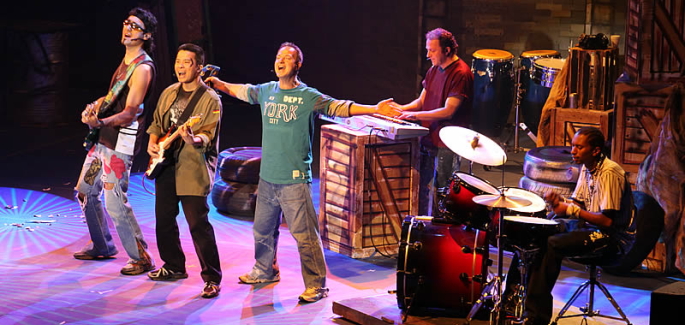
4 Jul 2017 | Focolare Worldwide
 Every life bears hope within. Even in the dark tunnel of addiction a light can still shine. In 1983 in the city of Guaratinguetá, in the State of Sao Paolo (Brazil), Nelson Giovanelli, encouraged by Fr. Han Stepel, a German Franciscan friar, approached a group of drug addicts. The young Nelson won their trust and one of them, Antonio Eleuterio, asked him for help to be able to get out of the drug ring. Those were the first steps of the big Fazenda da Esperança family. In 1989, Iraci Leite and Lucilene Rosendo, two girls of the same parish, following Nelson’s example, left everything to dedicate themselves totally to this new mission. In 2007 Pope Benedict XVI visited the Pedrinhas community in Brazil, at the Aparecida shrine. Since then the Fazenda da Esperança’s mission has spread worldwide. The operators of the current 118 Fazendas diffused in 17 nations are volunteers, often with a background of drug and alcohol addiction, and who, after rehabilitation, felt God’s calling to become in turn, harbingers of hope for those who have plunged into the same dark pit. In the first days of May 2017, 60 volunteers of various Fazendas of the world went to Assisi, the city of St. Francis and St. Claire, and to Loppiano (Italy), to start a new “hope mission” through the roads of Europe. For two weeks, they were accompanied also by the international band, Gen Rosso. Germany, end of May. Some members of the band recount: “every morning, a caravan of cars and minibuses set out for a new destination, within an area of 400 kilometres: schools, communities, groups, and jailhouses. The boys and girls of the Fazenda share their past experiences, triggering and answering the question they are posed. Above all they light up hope: if they were able to make it, why can’t I do the same? These are stories of drugs, desperation, solitude, fear, crime, and jails. When the darkness becomes absolute, a light shines out: God loves me, just as I am, in the conditions I have reduced myself to. What do they hold on to, in order to be reborn? It is to the “Word of life,” and mutual love, the daily nutriment to get up on one’s feet and start again. An explosive message which flies to the sound of words, and also to the rhythm of music and dance steps, increasingly involving all. At first, all this generates simple curiosity and moments of doubt. Then the uncertainty melts away and smiles appear on the faces of many of the youths, up to when a heartfelt exchange of ideas occurs. Also today, the message of hope has pierced the hearts of many.” The tour Every Life Has Hope has travelled kilometres across various cities and regions, testifying to the presence of God in society today, and the chance for all, nobody excluded, to start again. In the jail of Bielefeld, the “caravan” encountered a hundred prisoners, and in Arnsberg, in north Germany, the members of the Shalom movement On Pentecost day in Koln, there was a stopover in a parish community, and in the afternoon, a meeting with the Caritas was held. Invited by the Auxiliary Bishop, the band sang the mass in the Cathedral, offering the song “I was there,” composed specifically for that occasion. In Gut Hange there were celebrations for the first five years of the opening of a women’s Fazenda. Furthermore, there were visits to homes for wayward tramps and terminally ill people, and meetings with students and drug addicts hosted in a public structure, with a congregation of nuns who dedicate their lives to accommodating girls with serious problems. The tour also made a stopover in Belgium at the community in Peer, a town that will soon open a new Fazenda. After two intense and joyful weeks, the Fazenda group will proceed to Berlin and Poland, while Gen Rosso will return to Loppiano to prepare for their next tour with the musical “Campus” in Apulia (southern Italy), where there will be the inauguration of a new Fazenda. Once again, together, they will light up new hope.
Every life bears hope within. Even in the dark tunnel of addiction a light can still shine. In 1983 in the city of Guaratinguetá, in the State of Sao Paolo (Brazil), Nelson Giovanelli, encouraged by Fr. Han Stepel, a German Franciscan friar, approached a group of drug addicts. The young Nelson won their trust and one of them, Antonio Eleuterio, asked him for help to be able to get out of the drug ring. Those were the first steps of the big Fazenda da Esperança family. In 1989, Iraci Leite and Lucilene Rosendo, two girls of the same parish, following Nelson’s example, left everything to dedicate themselves totally to this new mission. In 2007 Pope Benedict XVI visited the Pedrinhas community in Brazil, at the Aparecida shrine. Since then the Fazenda da Esperança’s mission has spread worldwide. The operators of the current 118 Fazendas diffused in 17 nations are volunteers, often with a background of drug and alcohol addiction, and who, after rehabilitation, felt God’s calling to become in turn, harbingers of hope for those who have plunged into the same dark pit. In the first days of May 2017, 60 volunteers of various Fazendas of the world went to Assisi, the city of St. Francis and St. Claire, and to Loppiano (Italy), to start a new “hope mission” through the roads of Europe. For two weeks, they were accompanied also by the international band, Gen Rosso. Germany, end of May. Some members of the band recount: “every morning, a caravan of cars and minibuses set out for a new destination, within an area of 400 kilometres: schools, communities, groups, and jailhouses. The boys and girls of the Fazenda share their past experiences, triggering and answering the question they are posed. Above all they light up hope: if they were able to make it, why can’t I do the same? These are stories of drugs, desperation, solitude, fear, crime, and jails. When the darkness becomes absolute, a light shines out: God loves me, just as I am, in the conditions I have reduced myself to. What do they hold on to, in order to be reborn? It is to the “Word of life,” and mutual love, the daily nutriment to get up on one’s feet and start again. An explosive message which flies to the sound of words, and also to the rhythm of music and dance steps, increasingly involving all. At first, all this generates simple curiosity and moments of doubt. Then the uncertainty melts away and smiles appear on the faces of many of the youths, up to when a heartfelt exchange of ideas occurs. Also today, the message of hope has pierced the hearts of many.” The tour Every Life Has Hope has travelled kilometres across various cities and regions, testifying to the presence of God in society today, and the chance for all, nobody excluded, to start again. In the jail of Bielefeld, the “caravan” encountered a hundred prisoners, and in Arnsberg, in north Germany, the members of the Shalom movement On Pentecost day in Koln, there was a stopover in a parish community, and in the afternoon, a meeting with the Caritas was held. Invited by the Auxiliary Bishop, the band sang the mass in the Cathedral, offering the song “I was there,” composed specifically for that occasion. In Gut Hange there were celebrations for the first five years of the opening of a women’s Fazenda. Furthermore, there were visits to homes for wayward tramps and terminally ill people, and meetings with students and drug addicts hosted in a public structure, with a congregation of nuns who dedicate their lives to accommodating girls with serious problems. The tour also made a stopover in Belgium at the community in Peer, a town that will soon open a new Fazenda. After two intense and joyful weeks, the Fazenda group will proceed to Berlin and Poland, while Gen Rosso will return to Loppiano to prepare for their next tour with the musical “Campus” in Apulia (southern Italy), where there will be the inauguration of a new Fazenda. Once again, together, they will light up new hope.
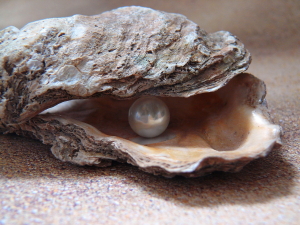
3 Jul 2017 | Focolare Worldwide, Senza categoria
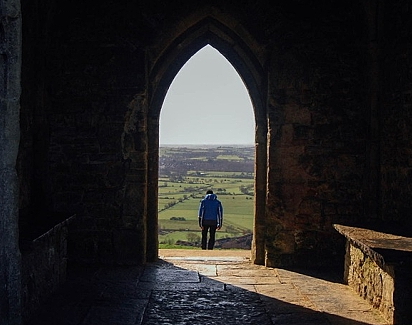 How many times must we forgive? “Three years ago my elder brother came to the house and offended my wife while I was away at work, When I returned home I got very angry, but together, we decided not to react. We then discovered that his daughter, who at that time, was living with us, returned to her house saying that she had to prepare lunch by herself. Besides, to our great surprise, my brother started to recount to the other people in our community that we had insulted him and that he would have forgiven us only if we asked his pardon. At this point this was just too much for us and for a year we no longer spoke to each other. One day I remembered that Jesus had taught us to forgive seventy times seven, in whatever situation we would encounter and even pray for our enemies. So, on the last day of the year, I organised a meeting of reconciliation, in the presence of all the enlarged family. . I was the first to speak, I told the members of the family that we were not there to give long speeches, or to judge one another, but simply to ask my elder brother’s forgiveness and that we were sorry for having offended him. Then I got up and knelt in front of him, in a gesture of humility and goodness of heart, two Christian virtues. The members of the family, including my brother, were so surprised and taken aback by this gesture, and none of them dared to speak. After a few minutes he told me that he had forgiven me. We returned home happy and serene for having re-established peace among our families. (Christopher and Perpetua Idu – Africa)
How many times must we forgive? “Three years ago my elder brother came to the house and offended my wife while I was away at work, When I returned home I got very angry, but together, we decided not to react. We then discovered that his daughter, who at that time, was living with us, returned to her house saying that she had to prepare lunch by herself. Besides, to our great surprise, my brother started to recount to the other people in our community that we had insulted him and that he would have forgiven us only if we asked his pardon. At this point this was just too much for us and for a year we no longer spoke to each other. One day I remembered that Jesus had taught us to forgive seventy times seven, in whatever situation we would encounter and even pray for our enemies. So, on the last day of the year, I organised a meeting of reconciliation, in the presence of all the enlarged family. . I was the first to speak, I told the members of the family that we were not there to give long speeches, or to judge one another, but simply to ask my elder brother’s forgiveness and that we were sorry for having offended him. Then I got up and knelt in front of him, in a gesture of humility and goodness of heart, two Christian virtues. The members of the family, including my brother, were so surprised and taken aback by this gesture, and none of them dared to speak. After a few minutes he told me that he had forgiven me. We returned home happy and serene for having re-established peace among our families. (Christopher and Perpetua Idu – Africa)  Pearl of great price I was living through a really hard marriage. My husband developed an alcohol addiction due to having served in the Army. Shortly after coming back to England and eating fairly normally again, he developed a duodenal ulcer, which gave him appalling abdominal pain and appeared to be incurable. It was then that he discovered alcohol as an effective pain killer. I lived through this horrific time with him. I only speak of all this because I need to describe how I found myself physically and mentally at the end of my tether. I spoke with various doctors and professionals but they were unable to help either him or me. I hadn’t yet discovered Alcoholics Anonymous. A year or so later we met the Focolare Movement. At the event I ended up writing to someone in the Focolare community that I really respected and trusted. I told him about the impossibility of our lives. His response was: “Thank you for sharing with me your ‘pearl of great price’..”’ I was aghast. How could all the huge difficulties that I had described to him be called my ‘pearl of great price’? It took me years to begin to understand how to turn suffering into love, to ‘let go’ of everything I thought was necessary in order to be accepted socially; to make things tidy and whitewashed. To be honest, to be able to say my ‘yes’ rather than ‘no’. I began to understand the innumerable things that make up one’s ego! Now in my old age I am beginning to discover or rather I have a ‘murmur’ of what it is to experience what ‘melt down’ means. It’s an absolute surrender, allowing God to wrap me in his arms and to let him do all the work. Before he died, my husband had a direct experience of Jesus’ love and never drank again. Also I was released from depression. All this has taken years, most of my life really. But it certainly was and is my ‘pearl of great price’ – truly. Source: New City (London)
Pearl of great price I was living through a really hard marriage. My husband developed an alcohol addiction due to having served in the Army. Shortly after coming back to England and eating fairly normally again, he developed a duodenal ulcer, which gave him appalling abdominal pain and appeared to be incurable. It was then that he discovered alcohol as an effective pain killer. I lived through this horrific time with him. I only speak of all this because I need to describe how I found myself physically and mentally at the end of my tether. I spoke with various doctors and professionals but they were unable to help either him or me. I hadn’t yet discovered Alcoholics Anonymous. A year or so later we met the Focolare Movement. At the event I ended up writing to someone in the Focolare community that I really respected and trusted. I told him about the impossibility of our lives. His response was: “Thank you for sharing with me your ‘pearl of great price’..”’ I was aghast. How could all the huge difficulties that I had described to him be called my ‘pearl of great price’? It took me years to begin to understand how to turn suffering into love, to ‘let go’ of everything I thought was necessary in order to be accepted socially; to make things tidy and whitewashed. To be honest, to be able to say my ‘yes’ rather than ‘no’. I began to understand the innumerable things that make up one’s ego! Now in my old age I am beginning to discover or rather I have a ‘murmur’ of what it is to experience what ‘melt down’ means. It’s an absolute surrender, allowing God to wrap me in his arms and to let him do all the work. Before he died, my husband had a direct experience of Jesus’ love and never drank again. Also I was released from depression. All this has taken years, most of my life really. But it certainly was and is my ‘pearl of great price’ – truly. Source: New City (London)
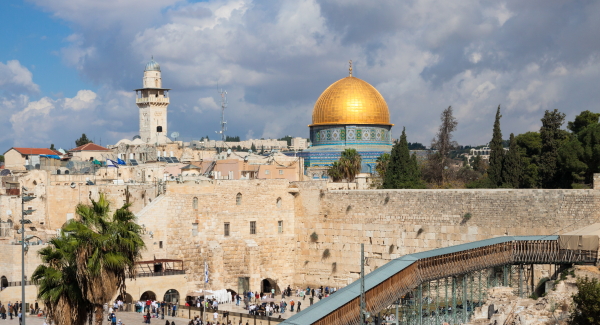
28 Jun 2017 | Focolare Worldwide
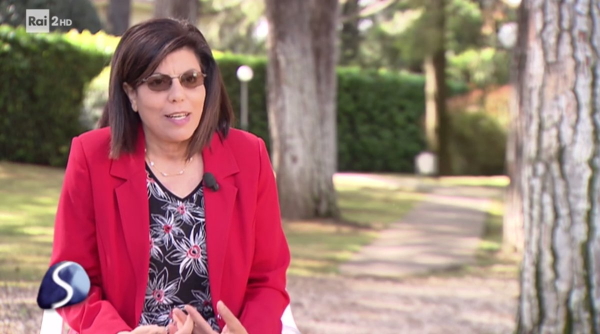 June 1967: It was precisely fifty years ago that Israel occupied the Palestinian Territories. Ever since then, there has been a succession of violent encounters and many deaths. Nevertheless, many continue to work at building a peaceful future. Among them is Margaret Karram, already a member of the Episcopal Commission for Interreligious Dialogue from the Assembly of Catholic Ordinaries of the Holy Land, and collaborator in the direction of the Interreligious Coordinating Council in Israel (ICCI). Since 2014 she has been working at the Focolare International Centre in Italy. Margaret K.: “I was born in Haifa, a city in Galilee, and my land has always been under conflicts, battles, and the domination of several peoples. Our home is on Mt Carmel, in a Jewish quarter. We were the only Catholic Christian Arab family orginially from Palestine. I remember when I was small, maybe six years old, some children began to insult me heavily saying that I was Arab and couldn’t stay in that quarter. I ran to my mother in tears, asking the reason why. In response, my mother told me to invite those children over to our house. She had baked some Arab bread and gave it to them to take to their families. From such small gestures we began to make contact with our Jewish neighbours who wanted to know the woman that had performed such a gesture. This taught me that even a small act of love towards a neighbour is capable of overcoming a mountain of hatered.” Margaret’s story continues with a description of memories and events that bear witness to the difficulties she had to face. Arab, Catholic Christian, Margaret is an Israeli citizen. Like other Christians many of her relatives had to flee to Lebanon during the war years. So she never got to know much of her family, because her father decided to stay with the grandparents. She felt a growing desire to build bridges of brotherhood. “I dreamed about peace from the time I was small. I often used to go to the Arab quarters in Jerusalem, Bethlehem or in other Palistinian territories. Arab was spoken – which is my first language – the people could tell from my accent that I came from Galilee which is Israel territory. Likewise, if I spoke in Hebrew they made me notice that my accent was different from theirs. I had a sense of confusion about my identity: I was neither Palistinian nor Israeli… At age 15 I got to know the Focolare Movement, and the spirituality of Chiara Lubich gave me wings to fly. I felt that I didn’t have to change people, but change me, my heart. I went back to believing that other people were a gift for me and that I could be a gift for them.
June 1967: It was precisely fifty years ago that Israel occupied the Palestinian Territories. Ever since then, there has been a succession of violent encounters and many deaths. Nevertheless, many continue to work at building a peaceful future. Among them is Margaret Karram, already a member of the Episcopal Commission for Interreligious Dialogue from the Assembly of Catholic Ordinaries of the Holy Land, and collaborator in the direction of the Interreligious Coordinating Council in Israel (ICCI). Since 2014 she has been working at the Focolare International Centre in Italy. Margaret K.: “I was born in Haifa, a city in Galilee, and my land has always been under conflicts, battles, and the domination of several peoples. Our home is on Mt Carmel, in a Jewish quarter. We were the only Catholic Christian Arab family orginially from Palestine. I remember when I was small, maybe six years old, some children began to insult me heavily saying that I was Arab and couldn’t stay in that quarter. I ran to my mother in tears, asking the reason why. In response, my mother told me to invite those children over to our house. She had baked some Arab bread and gave it to them to take to their families. From such small gestures we began to make contact with our Jewish neighbours who wanted to know the woman that had performed such a gesture. This taught me that even a small act of love towards a neighbour is capable of overcoming a mountain of hatered.” Margaret’s story continues with a description of memories and events that bear witness to the difficulties she had to face. Arab, Catholic Christian, Margaret is an Israeli citizen. Like other Christians many of her relatives had to flee to Lebanon during the war years. So she never got to know much of her family, because her father decided to stay with the grandparents. She felt a growing desire to build bridges of brotherhood. “I dreamed about peace from the time I was small. I often used to go to the Arab quarters in Jerusalem, Bethlehem or in other Palistinian territories. Arab was spoken – which is my first language – the people could tell from my accent that I came from Galilee which is Israel territory. Likewise, if I spoke in Hebrew they made me notice that my accent was different from theirs. I had a sense of confusion about my identity: I was neither Palistinian nor Israeli… At age 15 I got to know the Focolare Movement, and the spirituality of Chiara Lubich gave me wings to fly. I felt that I didn’t have to change people, but change me, my heart. I went back to believing that other people were a gift for me and that I could be a gift for them.  Living in Jerusalem I was often tempted to get discouraged, especially during the Palestinian uprising. We had some very bad moments in the city: many times the attacks happened in public places, even on the bus I took every day to work. I was frightened. I carried on because I had a community I could share the Focolare spirituality with. And I finally found my true self as a Christian, Catholic, witness to hope. It was an important step which freed me from the fears and uncertainties. I could love everyone, Arab and Israeli, assisting at small miracles, seeing Jews and Muslims change attitude and start to build peace.” Obviously, there are a lot of projects. Many organizations work for peace through art, education, social action… Many people like her try to enkindle the light that can illuminate the darkness with glimmers of heaven. In June 2014, Margaret was invited to be part of the Christian delegation at the prayer invocation for peace with Pope Francis, Patriarch Bartholomew, Shimon Peres who was the president of Israel at the time and Abu Mazen, president of Palestine. “Right after that meeting there was war on the Garza Strip. The Pope’s invitation to the two Heads of State to work for peace between their people seemed in vain. But it was a historic event, an important step. I perceived the power of prayer and understood that human hearts can only be changed by God. We should continue to invoke peace from God. Like the olive trees we planted that day, that peace might take root and let us see the fruits.” Video (Italian)
Living in Jerusalem I was often tempted to get discouraged, especially during the Palestinian uprising. We had some very bad moments in the city: many times the attacks happened in public places, even on the bus I took every day to work. I was frightened. I carried on because I had a community I could share the Focolare spirituality with. And I finally found my true self as a Christian, Catholic, witness to hope. It was an important step which freed me from the fears and uncertainties. I could love everyone, Arab and Israeli, assisting at small miracles, seeing Jews and Muslims change attitude and start to build peace.” Obviously, there are a lot of projects. Many organizations work for peace through art, education, social action… Many people like her try to enkindle the light that can illuminate the darkness with glimmers of heaven. In June 2014, Margaret was invited to be part of the Christian delegation at the prayer invocation for peace with Pope Francis, Patriarch Bartholomew, Shimon Peres who was the president of Israel at the time and Abu Mazen, president of Palestine. “Right after that meeting there was war on the Garza Strip. The Pope’s invitation to the two Heads of State to work for peace between their people seemed in vain. But it was a historic event, an important step. I perceived the power of prayer and understood that human hearts can only be changed by God. We should continue to invoke peace from God. Like the olive trees we planted that day, that peace might take root and let us see the fruits.” Video (Italian)
27 Jun 2017 | Focolare Worldwide
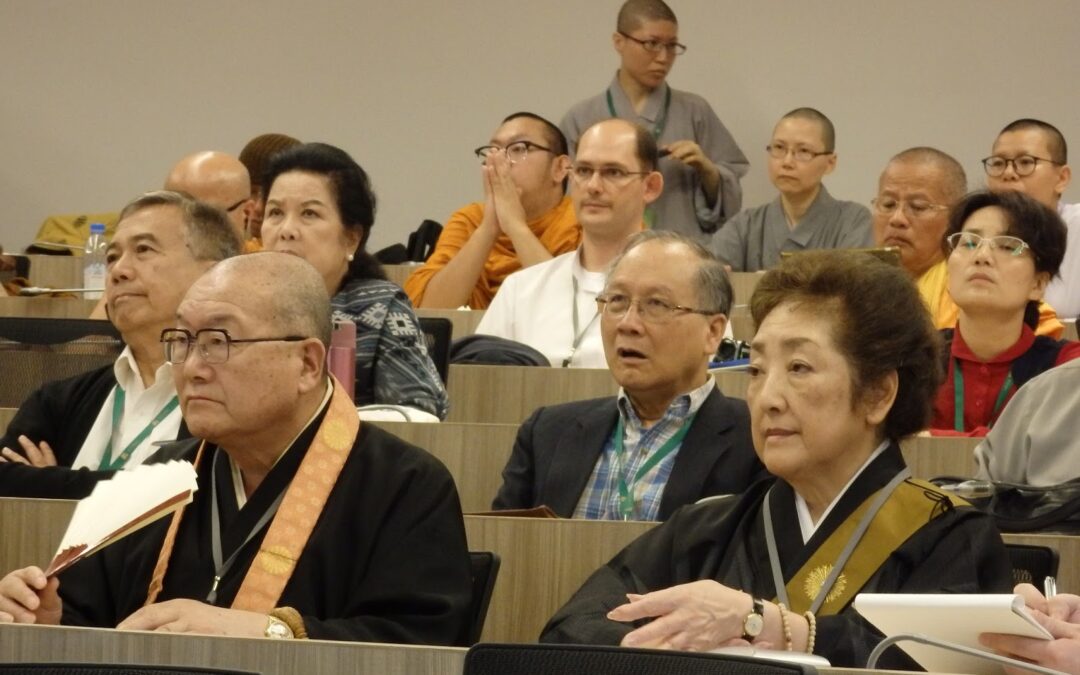
24 Jun 2017 | Focolare Worldwide
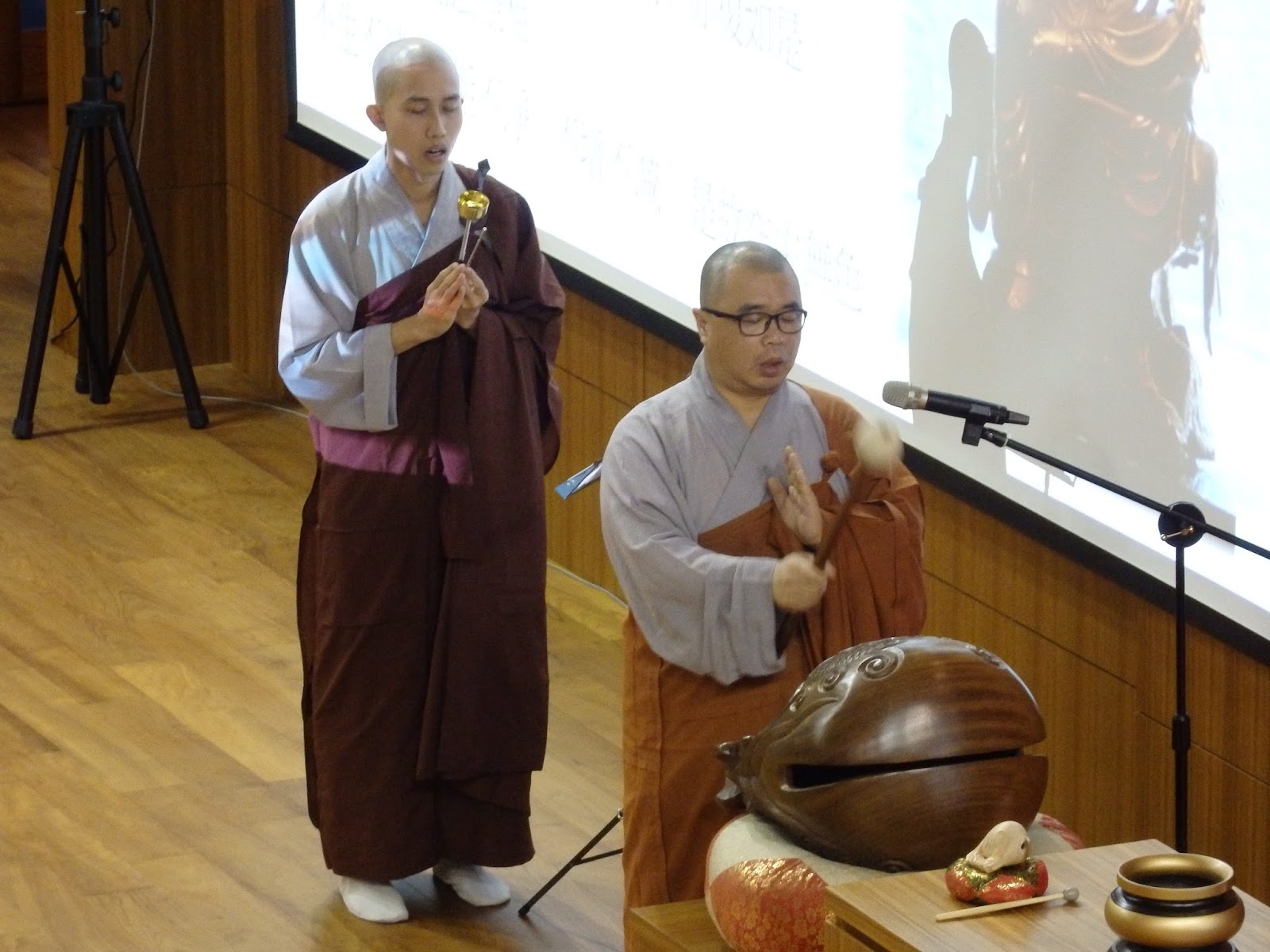 We reached Dharma Drum last night at dusk, where we were welcomed with exquisite kindness by young volunteers who helped us to get settled in our rooms. Then there was dinner and greetings. The symposium began the next morning. The conference hall and the entire building that holds the College of Liberal Arts is modern, built by a Japanese architect with elevated gardens to ensure a pleasant climate even during the hot rainy season, despite the humidity seeming to dominate all year long. The food they offer us is completely vegetarian and at a high culinary level, the expression of a delicate and attentive welcome that helps us feel at home.
We reached Dharma Drum last night at dusk, where we were welcomed with exquisite kindness by young volunteers who helped us to get settled in our rooms. Then there was dinner and greetings. The symposium began the next morning. The conference hall and the entire building that holds the College of Liberal Arts is modern, built by a Japanese architect with elevated gardens to ensure a pleasant climate even during the hot rainy season, despite the humidity seeming to dominate all year long. The food they offer us is completely vegetarian and at a high culinary level, the expression of a delicate and attentive welcome that helps us feel at home. 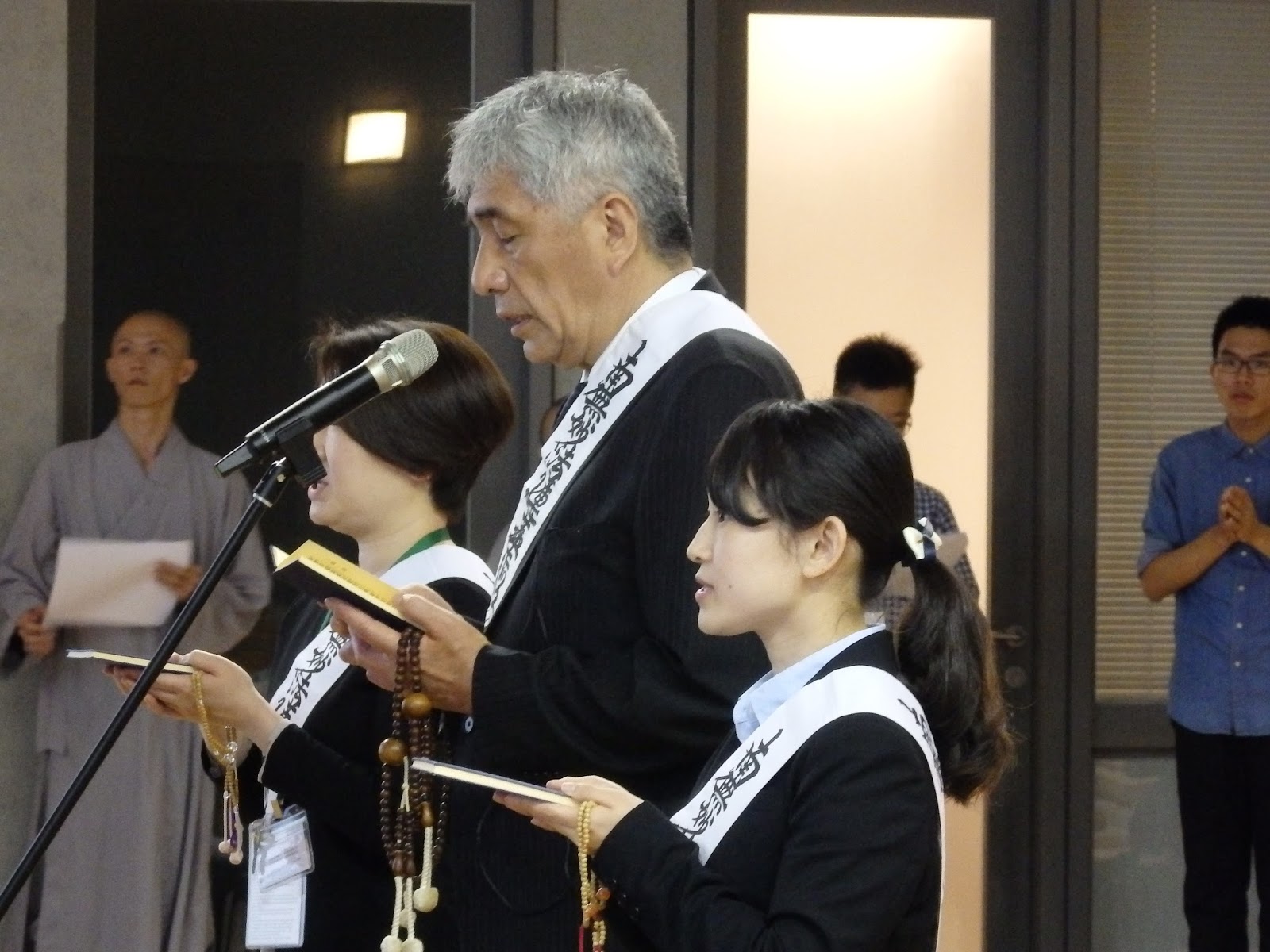 The opening ceremony begins at 10am. One of the members of the teaching faculty, Guohuei Shih, presents the professors there. Father Giuseppe Silvestrini, the official representative of the Vatican, greets the group, followed by Rita Moussalem and Roberto Catalano, co-directors of the Focolare’s Center for Interreligious Dialogue. There are about 70 of us from the U.S. Europe, Thailand, Korea, Japan, Philippines, China and Taiwan – both Buddhists from different traditions and Catholics. There are Theravada monks and laypeople from Thailand, Mahayana Buddhists from Japan who represent ancient schools such as Nichiren-Shu, Tendai-Shu and more recent movements such as the Rissho Kosei-kai. There is a lot of warmth between everyone present, including those who have brought their young followers. These are relationships that have been established through the years. After the opening ceremony, there was a visit to the huge complex, which brought the various groups to different parts of Dharma Drum Mountain. Visiting the museum of Master Sheng Yen, the founder of Dharma Drum and reformer of Chan Buddhism, was particularly meaningful. In the afternoon we continued by touring the various halls, where images of the Buddha are venerated. There was an especially interesting lesson on how to venerate the Enlightened One. The Theravada monks humbly learned from the same tradition that the young monks do there at that university.
The opening ceremony begins at 10am. One of the members of the teaching faculty, Guohuei Shih, presents the professors there. Father Giuseppe Silvestrini, the official representative of the Vatican, greets the group, followed by Rita Moussalem and Roberto Catalano, co-directors of the Focolare’s Center for Interreligious Dialogue. There are about 70 of us from the U.S. Europe, Thailand, Korea, Japan, Philippines, China and Taiwan – both Buddhists from different traditions and Catholics. There are Theravada monks and laypeople from Thailand, Mahayana Buddhists from Japan who represent ancient schools such as Nichiren-Shu, Tendai-Shu and more recent movements such as the Rissho Kosei-kai. There is a lot of warmth between everyone present, including those who have brought their young followers. These are relationships that have been established through the years. After the opening ceremony, there was a visit to the huge complex, which brought the various groups to different parts of Dharma Drum Mountain. Visiting the museum of Master Sheng Yen, the founder of Dharma Drum and reformer of Chan Buddhism, was particularly meaningful. In the afternoon we continued by touring the various halls, where images of the Buddha are venerated. There was an especially interesting lesson on how to venerate the Enlightened One. The Theravada monks humbly learned from the same tradition that the young monks do there at that university. 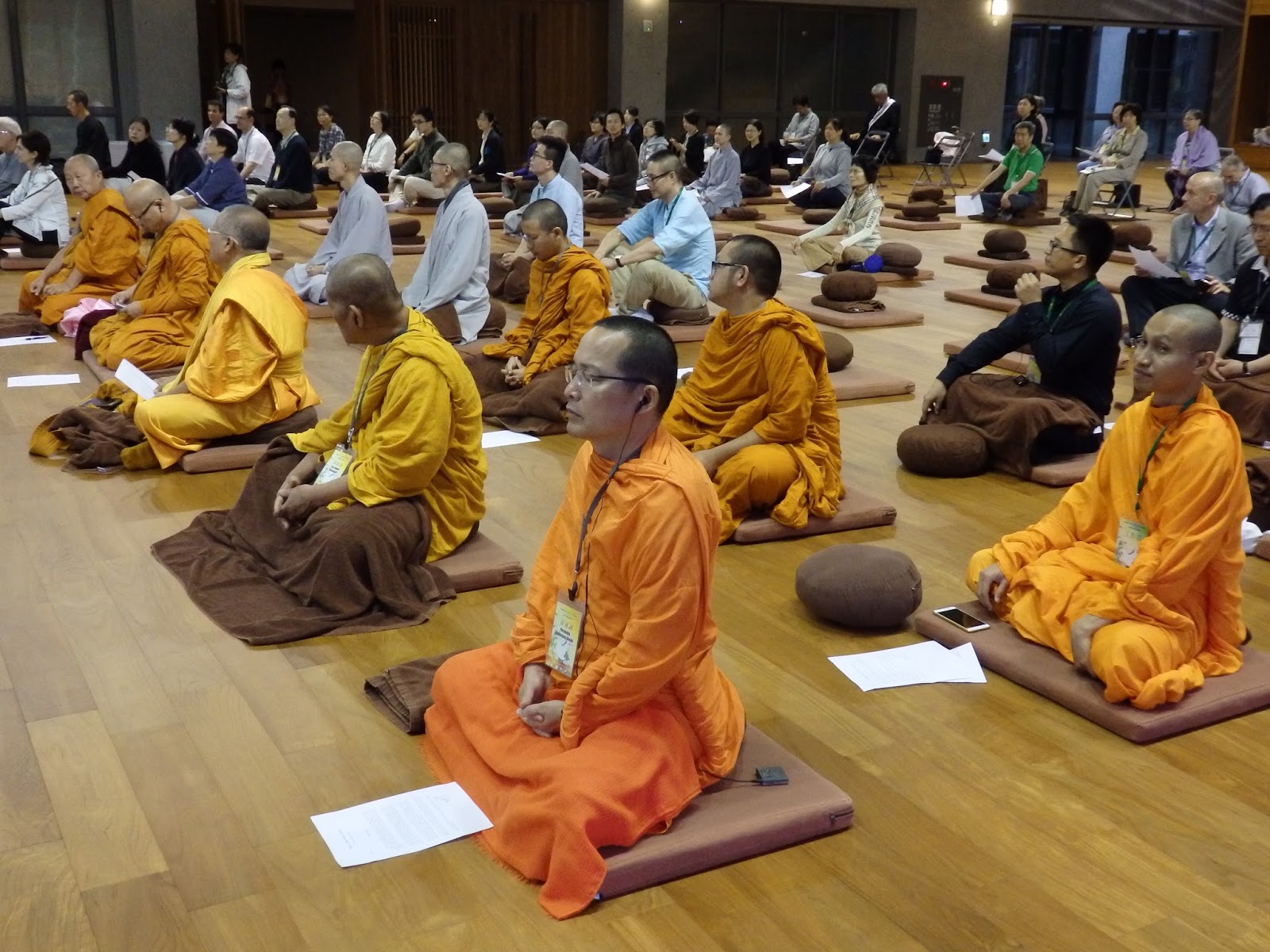 The most beautiful moment of the day is called “blessing time”: a long moment of prayer where each person prays according to their tradition – a moment of solemnness, respect and silence. In the hall dedicated to Buddha, where Christians that morning had celebrated mass, we spend an hour-and-a-half in a string of prayers. The Theravada monks begin and the Christians follow. Following them, there are the members of the Rissho Kosei-kai and Tendai-Shu, finishing with the Fo Gu Shan monks. Time seems to stop, and we feel greatly enriched in our hearts. It feels as if we are touching humanity’s infinite yearning and need to reach the absolute, especially faced with the immense problems of suffering and war. As we leave we feel closer to each other, despite having had the part of the program where our differences surfaced the most. There is a spirit of communion and mutual respect that brings us closer during every part of the program. In the days that follow, work continues so that we continually grow to know each other better with a rapport of friendship and true fraternity. We speak about suffering, with speeches on the personal and social dimension of suffering, presented by Christians, Theravada Buddhists from Thailand, Mahayana Buddhists, the Rissho Kosei-kai, Tendai-Shu and Won Buddhism from Korea. There are also workshops in parallel where the presenters discuss religion and psychology, dialogue and social action, experiences of dialogue in a variety of contexts, and mediation and dialogue, with a particular emphasis on Vipassana mediation. Three experts conclude the program with some reflections on the content that emerged during this work.
The most beautiful moment of the day is called “blessing time”: a long moment of prayer where each person prays according to their tradition – a moment of solemnness, respect and silence. In the hall dedicated to Buddha, where Christians that morning had celebrated mass, we spend an hour-and-a-half in a string of prayers. The Theravada monks begin and the Christians follow. Following them, there are the members of the Rissho Kosei-kai and Tendai-Shu, finishing with the Fo Gu Shan monks. Time seems to stop, and we feel greatly enriched in our hearts. It feels as if we are touching humanity’s infinite yearning and need to reach the absolute, especially faced with the immense problems of suffering and war. As we leave we feel closer to each other, despite having had the part of the program where our differences surfaced the most. There is a spirit of communion and mutual respect that brings us closer during every part of the program. In the days that follow, work continues so that we continually grow to know each other better with a rapport of friendship and true fraternity. We speak about suffering, with speeches on the personal and social dimension of suffering, presented by Christians, Theravada Buddhists from Thailand, Mahayana Buddhists, the Rissho Kosei-kai, Tendai-Shu and Won Buddhism from Korea. There are also workshops in parallel where the presenters discuss religion and psychology, dialogue and social action, experiences of dialogue in a variety of contexts, and mediation and dialogue, with a particular emphasis on Vipassana mediation. Three experts conclude the program with some reflections on the content that emerged during this work. 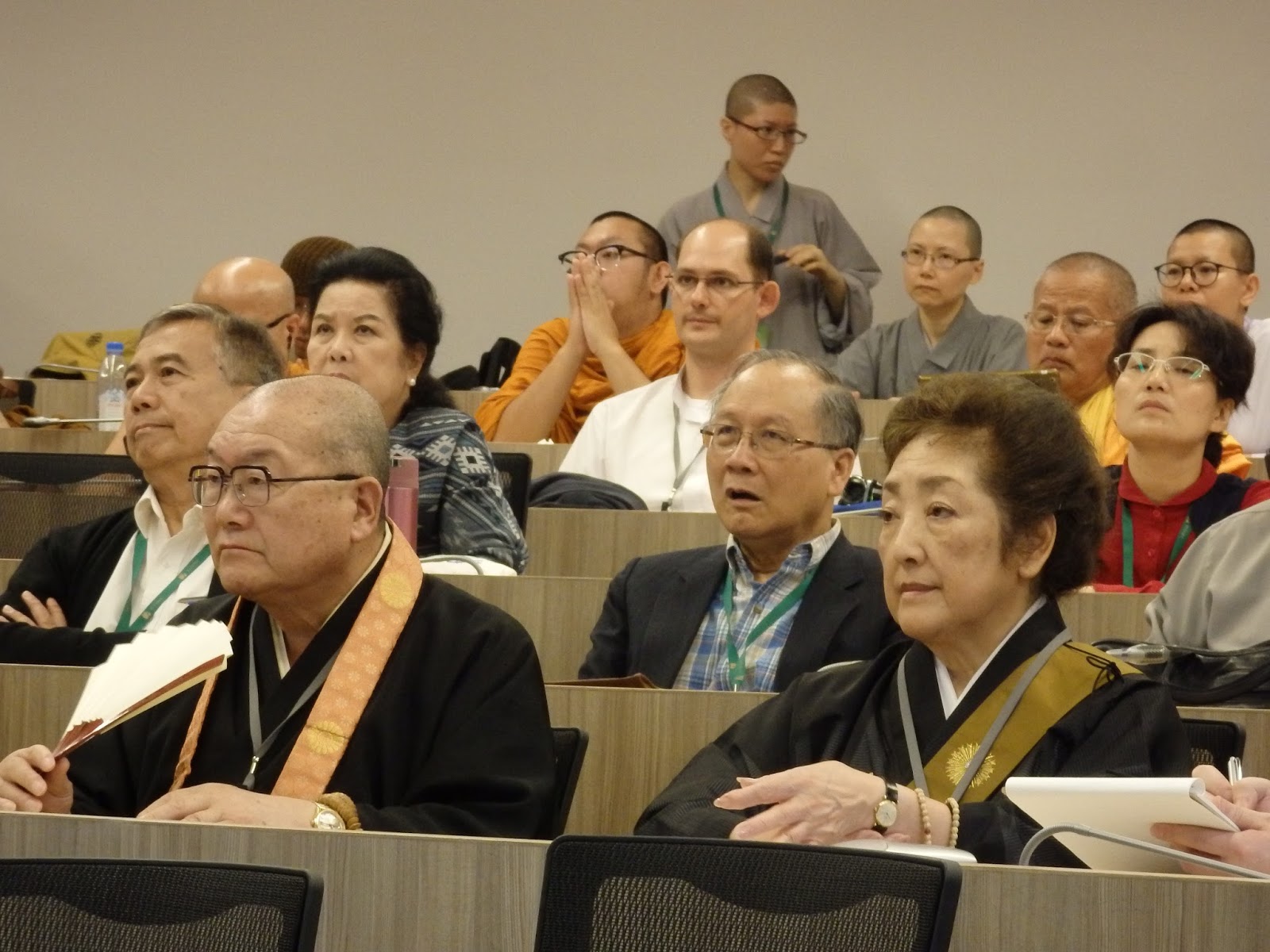 Beyond all this, what counts most is the atmosphere that was created. The head of the Dharma Institute of Liberal Arts, Rev. Huimin Bikshu, confides that this is the first meeting of its kind at the university. Besides those signed up as participants, there are also monks and nuns from the Dharma Drum Monastery and students of the college. The day is marked by a great spiritual and existential commitment. The dialogue allows us to emphasize what we have in common, despite there being great differences between the traditions. There are experiences that put up bridges of dialogue that bring hope, as Rev. Nisyoka from the Japanese Tendai-Shu affirms. The conclusion of the work happens in the afternoon, organized by Providence University, an academic institution located at Thien Chu. There we talk about economics, the environment and interreligious dialogue. The results from this week of common experience, reflection and spiritual friendship are difficult to convey. They are part of each of the participants’ souls. Perhaps what was said by a young Japanese monk, the abbot of a temple in his country, explains the depth of the experience best. “Rarely in life have I perceived the intimate presence of God-Buddha as I have in these days at our symposium in Taiwan… I have studied in Christian schools and I always thought that Christianity was a religion that happens in church (rites and religious services). During the symposium in Taiwan I understood that Christianity, instead, is the religion of the presence of God among people.” By Roberto Catalano Read Part I
Beyond all this, what counts most is the atmosphere that was created. The head of the Dharma Institute of Liberal Arts, Rev. Huimin Bikshu, confides that this is the first meeting of its kind at the university. Besides those signed up as participants, there are also monks and nuns from the Dharma Drum Monastery and students of the college. The day is marked by a great spiritual and existential commitment. The dialogue allows us to emphasize what we have in common, despite there being great differences between the traditions. There are experiences that put up bridges of dialogue that bring hope, as Rev. Nisyoka from the Japanese Tendai-Shu affirms. The conclusion of the work happens in the afternoon, organized by Providence University, an academic institution located at Thien Chu. There we talk about economics, the environment and interreligious dialogue. The results from this week of common experience, reflection and spiritual friendship are difficult to convey. They are part of each of the participants’ souls. Perhaps what was said by a young Japanese monk, the abbot of a temple in his country, explains the depth of the experience best. “Rarely in life have I perceived the intimate presence of God-Buddha as I have in these days at our symposium in Taiwan… I have studied in Christian schools and I always thought that Christianity was a religion that happens in church (rites and religious services). During the symposium in Taiwan I understood that Christianity, instead, is the religion of the presence of God among people.” By Roberto Catalano Read Part I

 People travel for various reasons: curiosity, thirst for knowledge, spirit of adventure, or in search of oneself. This was not so for Gianni Ricci who has indeed travelled far and wide and who is the co-author with Delfina Ducci, of an unedited book published by New City, The long journey tto “making yourself one.” He “lived on the road” so to say, with aim of bringing solace to humanity’s infinite forms of suffering. Born in Ripalta Cremasca, in northern Italy, in a simple but dignified family, he was raised with authentic Christian values. At the age of 20 he met Chiara Lubich’s spirituality of unity which revolutionised his idea of Christian life, so much so that he made the Focolare way of life his very own. In 1964 he left for Loppiano (Florence, Italy), the newly born town of the Movement, to which he faithfully dedicated twenty years of his life. After Loppiano, he accepted God’s will which led him first to Turkey, where he helped the newborn community to grow, then to the Lebanon, the Holy Land, Algiers, Jordan, Iraq, Egypt, Syria, Tunisia and Morocco. “How many sudden changes I underwent! I am now in Turkey. There is nothing that can stop me from reaching sanctity. There is so much to do here,” he said. Gianni Ricci, the soulful globe trotter, took note of all he encountered, sometimes foregoing the difficulties, especially in relating with such diverse peoples. Though he saw the tragedy of the wars that caused deep wounds in the population, smothering hopes in a possible future stability and peace, he did not seek solutions or possible solutions in history books. He simply lived alongside the people he met, with a free and open heart towards an “infinite” humanity, that speaks the same language of the heart and of suffering. «At the end of January 1986, with Aletta (focolarina of the early times) he travelled from Istanbul to Ankara and from there to Beirut, in Lebanon. The airport was half-destroyed by bombs! Lebanon was devastated by civil war (…). The check points were severe, the authorities suspected everyone and everything. Each check point was guarded by different factions. After eight days, Gianni left again for Istanbul. Along the 120 km that separated Beirut from the confines with Syria, they had to pass through 13 check points. At the first one they risked their lives. He stopped in front of a guardhouse where a soldier armed to his teeth asked to see his documents. He showed them and was able to leave. After a few steps a boy warned him to go back, making him note that the guard was pointing his gun on him and had not given the order to proceed. He didn’t press the trigger, thanks to Allah,” he said. It is not a political narration, but solely a “humane” one. The humanity he speaks about has no colour, language, passports, confines, laws or customs. In every place he was assigned to, Gianni undertook to nurture the relationships with the local Churches, Islam, the Hebrew world, with the aim of sustaining all the people he met, to defeat the fear and uncertainty of the future, the tensions provoked by war. A chain of memories in a perspective of unity – this is the “logic” that still drives Gianni, a stupefied observer of God’s works. The citations were taken from “The Long Journey to “making yourself one.” Experiences in the Middle East, Città Nuova, 2016.
People travel for various reasons: curiosity, thirst for knowledge, spirit of adventure, or in search of oneself. This was not so for Gianni Ricci who has indeed travelled far and wide and who is the co-author with Delfina Ducci, of an unedited book published by New City, The long journey tto “making yourself one.” He “lived on the road” so to say, with aim of bringing solace to humanity’s infinite forms of suffering. Born in Ripalta Cremasca, in northern Italy, in a simple but dignified family, he was raised with authentic Christian values. At the age of 20 he met Chiara Lubich’s spirituality of unity which revolutionised his idea of Christian life, so much so that he made the Focolare way of life his very own. In 1964 he left for Loppiano (Florence, Italy), the newly born town of the Movement, to which he faithfully dedicated twenty years of his life. After Loppiano, he accepted God’s will which led him first to Turkey, where he helped the newborn community to grow, then to the Lebanon, the Holy Land, Algiers, Jordan, Iraq, Egypt, Syria, Tunisia and Morocco. “How many sudden changes I underwent! I am now in Turkey. There is nothing that can stop me from reaching sanctity. There is so much to do here,” he said. Gianni Ricci, the soulful globe trotter, took note of all he encountered, sometimes foregoing the difficulties, especially in relating with such diverse peoples. Though he saw the tragedy of the wars that caused deep wounds in the population, smothering hopes in a possible future stability and peace, he did not seek solutions or possible solutions in history books. He simply lived alongside the people he met, with a free and open heart towards an “infinite” humanity, that speaks the same language of the heart and of suffering. «At the end of January 1986, with Aletta (focolarina of the early times) he travelled from Istanbul to Ankara and from there to Beirut, in Lebanon. The airport was half-destroyed by bombs! Lebanon was devastated by civil war (…). The check points were severe, the authorities suspected everyone and everything. Each check point was guarded by different factions. After eight days, Gianni left again for Istanbul. Along the 120 km that separated Beirut from the confines with Syria, they had to pass through 13 check points. At the first one they risked their lives. He stopped in front of a guardhouse where a soldier armed to his teeth asked to see his documents. He showed them and was able to leave. After a few steps a boy warned him to go back, making him note that the guard was pointing his gun on him and had not given the order to proceed. He didn’t press the trigger, thanks to Allah,” he said. It is not a political narration, but solely a “humane” one. The humanity he speaks about has no colour, language, passports, confines, laws or customs. In every place he was assigned to, Gianni undertook to nurture the relationships with the local Churches, Islam, the Hebrew world, with the aim of sustaining all the people he met, to defeat the fear and uncertainty of the future, the tensions provoked by war. A chain of memories in a perspective of unity – this is the “logic” that still drives Gianni, a stupefied observer of God’s works. The citations were taken from “The Long Journey to “making yourself one.” Experiences in the Middle East, Città Nuova, 2016.


 How many times must we forgive? “Three years ago my elder brother came to the house and offended my wife while I was away at work, When I returned home I got very angry, but together, we decided not to react. We then discovered that his daughter, who at that time, was living with us, returned to her house saying that she had to prepare lunch by herself. Besides, to our great surprise, my brother started to recount to the other people in our community that we had insulted him and that he would have forgiven us only if we asked his pardon. At this point this was just too much for us and for a year we no longer spoke to each other. One day I remembered that Jesus had taught us to forgive seventy times seven, in whatever situation we would encounter and even pray for our enemies. So, on the last day of the year, I organised a meeting of reconciliation, in the presence of all the enlarged family. . I was the first to speak, I told the members of the family that we were not there to give long speeches, or to judge one another, but simply to ask my elder brother’s forgiveness and that we were sorry for having offended him. Then I got up and knelt in front of him, in a gesture of humility and goodness of heart, two Christian virtues. The members of the family, including my brother, were so surprised and taken aback by this gesture, and none of them dared to speak. After a few minutes he told me that he had forgiven me. We returned home happy and serene for having re-established peace among our families. (Christopher and Perpetua Idu –
How many times must we forgive? “Three years ago my elder brother came to the house and offended my wife while I was away at work, When I returned home I got very angry, but together, we decided not to react. We then discovered that his daughter, who at that time, was living with us, returned to her house saying that she had to prepare lunch by herself. Besides, to our great surprise, my brother started to recount to the other people in our community that we had insulted him and that he would have forgiven us only if we asked his pardon. At this point this was just too much for us and for a year we no longer spoke to each other. One day I remembered that Jesus had taught us to forgive seventy times seven, in whatever situation we would encounter and even pray for our enemies. So, on the last day of the year, I organised a meeting of reconciliation, in the presence of all the enlarged family. . I was the first to speak, I told the members of the family that we were not there to give long speeches, or to judge one another, but simply to ask my elder brother’s forgiveness and that we were sorry for having offended him. Then I got up and knelt in front of him, in a gesture of humility and goodness of heart, two Christian virtues. The members of the family, including my brother, were so surprised and taken aback by this gesture, and none of them dared to speak. After a few minutes he told me that he had forgiven me. We returned home happy and serene for having re-established peace among our families. (Christopher and Perpetua Idu – 





 Beyond all this, what counts most is the atmosphere that was created. The head of the Dharma Institute of Liberal Arts, Rev. Huimin Bikshu, confides that this is the first meeting of its kind at the university. Besides those signed up as participants, there are also monks and nuns from the Dharma Drum Monastery and students of the college. The day is marked by a great spiritual and existential commitment. The dialogue allows us to emphasize what we have in common, despite there being great differences between the traditions. There are experiences that put up bridges of dialogue that bring hope, as Rev. Nisyoka from the Japanese Tendai-Shu affirms. The conclusion of the work happens in the afternoon, organized by Providence University, an academic institution located at Thien Chu. There we talk about economics, the environment and interreligious dialogue. The results from this week of common experience, reflection and spiritual friendship are difficult to convey. They are part of each of the participants’ souls. Perhaps what was said by a young Japanese monk, the abbot of a temple in his country, explains the depth of the experience best. “Rarely in life have I perceived the intimate presence of God-Buddha as I have in these days at our symposium in Taiwan… I have studied in Christian schools and I always thought that Christianity was a religion that happens in church (rites and religious services). During the symposium in Taiwan I understood that Christianity, instead, is the religion of the presence of God among people.” By Roberto Catalano
Beyond all this, what counts most is the atmosphere that was created. The head of the Dharma Institute of Liberal Arts, Rev. Huimin Bikshu, confides that this is the first meeting of its kind at the university. Besides those signed up as participants, there are also monks and nuns from the Dharma Drum Monastery and students of the college. The day is marked by a great spiritual and existential commitment. The dialogue allows us to emphasize what we have in common, despite there being great differences between the traditions. There are experiences that put up bridges of dialogue that bring hope, as Rev. Nisyoka from the Japanese Tendai-Shu affirms. The conclusion of the work happens in the afternoon, organized by Providence University, an academic institution located at Thien Chu. There we talk about economics, the environment and interreligious dialogue. The results from this week of common experience, reflection and spiritual friendship are difficult to convey. They are part of each of the participants’ souls. Perhaps what was said by a young Japanese monk, the abbot of a temple in his country, explains the depth of the experience best. “Rarely in life have I perceived the intimate presence of God-Buddha as I have in these days at our symposium in Taiwan… I have studied in Christian schools and I always thought that Christianity was a religion that happens in church (rites and religious services). During the symposium in Taiwan I understood that Christianity, instead, is the religion of the presence of God among people.” By Roberto Catalano